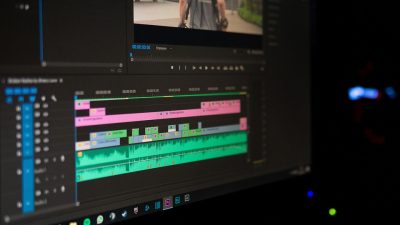Adobe Cancels All User Accounts in Venezuela to Comply with Trump Order
Adobe interprets Trump order broadly, claims it can't provide refunds.

Adobe is deactivating all user accounts in Venezuela, saying that the action is necessary to comply with an executive order issued by President Donald Trump. The action affects both free and paid accounts.
In an FAQ titled “Adobe compliance with US Executive Order,” the company explained yesterday why it is canceling its Venezuela-based customers’ subscriptions:
The US Government issued Executive Order 13884, the practical effect of which is to prohibit almost all transactions and services between US companies, entities, and individuals in Venezuela. To remain compliant with this order, Adobe is deactivating all accounts in Venezuela.
Adobe appears to be interpreting the executive order more broadly than other companies. Microsoft’s Office 365 and other cloud services are still available in Venezuela, for example. The executive order itself says the US action is targeted at the Venezuelan government and people who provide material support to the regime.
A US government notice states that the order does not affect all commerce between the US and Venezuela.
“US persons are not prohibited from engaging in transactions involving the country or people of Venezuela, provided blocked persons or any conduct prohibited by any other Executive order imposing sanctions measures related to the situation in Venezuela, are not involved,” the notice says. (In this context, a “person” is an individual or an entity such as a corporation or other type of organization.)
Adobe won’t give refunds
Adobe says it has no idea when or if it will reactivate customer accounts.
“Executive Order 13884 was issued with no expiration date—the decision to rescind it rests solely with the US Government,” Adobe wrote. “We will continue to monitor developments closely and will make every effort to restore services to Venezuela as soon as it is legally permissible to do so.”
According to Adobe, the company is not allowed to provide refunds.
“We are unable to issue refunds. Executive order 13884, orders the cessation of all activity with the entities including no sales, service, support, refunds, credits, etc.,” Adobe said.
Adobe is giving users in Venezuela until October 28 to download any content they have stored in their Adobe accounts. Files can be downloaded from Creative Cloud, Lightroom, Document Cloud, and Adobe Spark.
As previously mentioned, Adobe’s action will cut off access to users with either paid subscriptions or free accounts.
“Adobe will no longer provide access to software and services, including free ones, or enable you to make any new purchases,” the company said.
Adobe said it might take the same action in other countries. To comply, Adobe said it is
“ceasing all activity with entities and individuals in Venezuela as well as those who otherwise meet the criteria of Executive Order 13884 or other US sanctions regulations.”
The Trump order
Trump’s executive order, issued on August 5, was titled, “Blocking Property of the Government of Venezuela.” The order was a response to Venezuela’s ongoing presidential crisis following a disputed election held in May 2018.
The US supports Juan Guaidó’s claim to the presidency and describes President Nicolás Maduro as a usurper. The White House said Trump’s executive order is intended to “isolate Maduro’s illegitimate regime from the global financial system and the international community.”
As the Washington Post wrote in August, the Trump order “blocks all property and assets of the government and its officials, and prohibits any transactions with them, including the Venezuelan Central Bank and the state oil company.”
There was disagreement among experts on how wide-ranging the executive order is.
“This is not an embargo. It does not create penalties for business with Venezuela altogether, it just denies such activities with the government of Venezuela, and it is doubtful there were any of those still extant to be cut off by this action,” former State Department official Richard Nephew told The New York Times in August.
“In theory, a US company can continue to deal with non-governmental companies in Venezuela, and we do not believe the US will be inclined to sanction privately owned Venezuelan companies,” the National Law Review wrote.
However, Venezuelan economist Francisco Rodríguez told the Times that “financial institutions will be cautious not to make dealings with Venezuelan private sector firms, which could be perceived as proxies for the Venezuelan government.”
*
Note to readers: please click the share buttons above or below. Forward this article to your email lists. Crosspost on your blog site, internet forums. etc.
Jon Brodkin is Ars Technica’s senior IT reporter, covering the FCC and broadband, telecommunications, wireless technology, and more.
Featured image is from Pixabay

